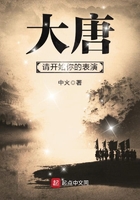Denys, of whom no less than seven heads, all equally genuine, are extant.
According to native Egyptian accounts, which supplement that of Plutarch, when Isis had found the corpse of her husband Osiris, she and her sister Nephthys sat down beside it and uttered a lament which in after ages became the type of all Egyptian lamentations for the dead. Come to thy house, they wailed. Come to thy house. O god On! come to thy house, thou who hast no foes. O fair youth, come to thy house, that thou mayest see me. I am thy sister, whom thou lovest; thou shalt not part from me. O fair boy, come to thy house . I see thee not, yet doth my heart yearn after thee and mine eyes desire thee. Come to her who loves thee, who loves thee, Unnefer, thou blessed one! Come to thy sister, come to thy wife, to thy wife, thou whose heart stands still. Come to thy housewife. I am thy sister by the same mother, thou shalt not be far from me. Gods and men have turned their faces towards thee and weep for thee together . I call after thee and weep, so that my cry is heard to heaven, but thou hearest not my voice; yet am I thy sister, whom thou didst love on earth; thou didst love none but me, my brother! my brother!
This lament for the fair youth cut off in his prime reminds us of the laments for Adonis. The title of Unnefer or the Good Being bestowed on him marks the beneficence which tradition universally ascribed to Osiris; it was at once his commonest title and one of his names as king.
The lamentations of the two sad sisters were not in vain. In pity for her sorrow the sun-god Ra sent down from heaven the jackal-headed god Anubis, who, with the aid of Isis and Nephthys, of Thoth and Horus, pieced together the broken body of the murdered god, swathed it in linen bandages, and observed all the other rites which the Egyptians were wont to perform over the bodies of the departed. Then Isis fanned the cold clay with her wings: Osiris revived, and thenceforth reigned as king over the dead in the other world.
There he bore the titles of Lord of the Underworld, Lord of Eternity, Ruler of the Dead. There, too, in the great Hall of the Two Truths, assisted by forty-two assessors, one from each of the principal districts of Egypt, he presided as judge at the trial of the souls of the departed, who made their solemn confession before him, and, their heart having been weighed in the balance of justice, received the reward of virtue in a life eternal or the appropriate punishment of their sins.
In the resurrection of Osiris the Egyptians saw the pledge of a life everlasting for themselves beyond the grave. They believed that every man would live eternally in the other world if only his surviving friends did for his body what the gods had done for the body of Osiris. Hence the ceremonies observed by the Egyptians over the human dead were an exact copy of those which Anubis, Horus, and the rest had performed over the dead god. At every burial there was enacted a representation of the divine mystery which had been performed of old over Osiris, when his son, his sisters, his friends were gathered round his mangled remains and succeeded by their spells and manipulations in converting his broken body into the first mummy, which they afterwards reanimated and furnished with the means of entering on a new individual life beyond the grave. The mummy of the deceased was Osiris; the professional female mourners were his two sisters Isis and Nephthys; Anubis, Horus, all the gods of the Osirian legend gathered about the corpse. In this way every dead Egyptian was identified with Osiris and bore his name. From the Middle Kingdom onwards it was the regular practice to address the deceased as Osiris So-and-So, as if he were the god himself, and to add the standing epithet true of speech, because true speech was characteristic of Osiris.
The thousands of inscribed and pictured tombs that have been opened in the valley of the Nile prove that the mystery of the resurrection was performed for the benefit of every dead Egyptian; as Osiris died and rose again from the dead, so all men hoped to arise like him from death to life eternal.
Thus according to what seems to have been the general native tradition Osiris was a good and beloved king of Egypt, who suffered a violent death but rose from the dead and was henceforth worshipped as a deity. In harmony with this tradition he was regularly represented by sculptors and painters in human and regal form as a dead king, swathed in the wrappings of a mummy, but wearing on his head a kingly crown and grasping in one of his hands, which were left free from the bandages, a kingly sceptre. Two cities above all others were associated with his myth or memory. One of them was Busiris in Lower Egypt, which claimed to possess his backbone; the other was Abydos in Upper Egypt, which gloried in the possession of his head. Encircled by the nimbus of the dead yet living god, Abydos, originally an obscure place, became from the end of the Old Kingdom the holiest spot in Egypt; his tomb there would seem to have been to the Egyptians what the Church of the Holy Sepulchre at Jerusalem is to Christians. It was the wish of every pious man that his dead body should rest in hallowed earth near the grave of the glorified Osiris. Few indeed were rich enough to enjoy this inestimable privilege; for, apart from the cost of a tomb in the sacred city, the mere transport of mummies from great distances was both difficult and expensive. Yet so eager were many to absorb in death the blessed influence which radiated from the holy sepulchre that they caused their surviving friends to convey their mortal remains to Abydos, there to tarry for a short time, and then to be brought back by river and interred in the tombs which had been made ready for them in their native land. Others had cenotaphs built or memorial tablets erected for themselves near the tomb of their dead and risen Lord, that they might share with him the bliss of a joyful resurrection.















